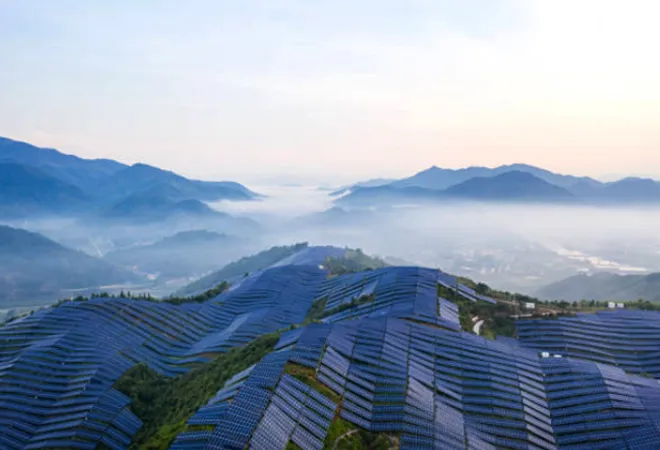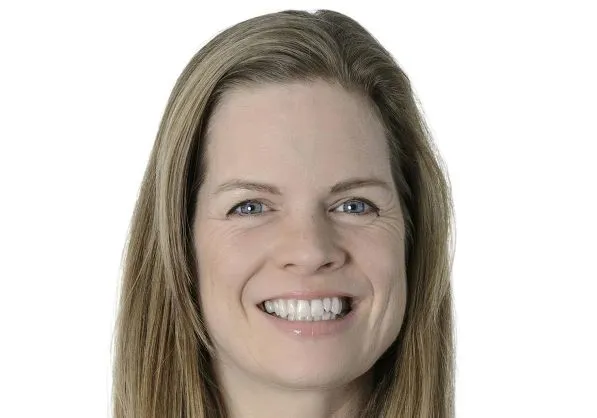
This piece is part of the essay series, Shaping our green future: Pathways and Policies for a Net-Zero Transformation.
The new IPCC Sixth Assessment Report clearly states that the coming decades are the planet’s last chance to keep global warming below 1.5°C before the end of the 21
st century.
<1> It underlined the need for economies to decarbonise (i.e., to undertake deep reductions in CO
2 and other greenhouse gas emissions) to save the planet from the manifold consequences of climate change. Indeed, commitments to decarbonisation or clean energy transition have been gaining ground, especially over the past year. Nearly 130 countries, responsible for 73 percent of global GHG emissions,
have either announced net zero targets or are considering them. If such goals are achieved in full, global warming could be limited to 2
oC by the end of the century.
To reap the benefits of decarbonisation, there is a need to ensure that these transitions are shared in a just and equitable manner while, as the United Nations exhorts, “leaving no one behind”.
Decarbonisation aims to shift away from the status quo and rethink the ways by which countries plan and operate their economic systems. The process is underway in many countries that are working to fulfil their commitments under the Paris Agreement and/or net zero targets. However, the current approaches are often technocratic, or the result of a techno-economic assessment of the right set of policies, incentives, and financing. They tend to give only tangential attention to questions related to people, especially the most vulnerable and marginalised.
To reap the benefits of decarbonisation, there is a need to ensure that these transitions are shared in a just and equitable manner while, as the United Nations exhorts, “leaving no one behind”. Therefore, to complete the decarbonisation-led transition towards a climate-compatible future, the imperative is for a sustained and persuasive commitment to justice, equity, and inclusion.
Climate Justice and Just Transition
In the context of climate change, the concept of “justice” has many aspects and is understood and addressed differently by different stakeholders. What the international community understands today as “climate justice”, and the closely linked concept of “just transition”, emerged from the protest movements of the 1980s in the United States (US) against the unjust distribution of environmental hazards within marginalised communities. More recently, “climate justice” has widened the aperture of environmental justice from largely local environmental issues to the global challenge of climate change, and is addressing the distributional outcomes of climate impact and action.
In a recent definition by the India Climate Collaborative, ‘climate justice’ is considered as an acknowledgement that climate change can have disproportionate social, economic, public health and other adverse impacts on the poorest and marginalised populations. It strives to address these inequities directly through long-term mitigation and resilience strategies.
The task force engaged extensively with the affected communities and emphasised on the need for sound policies and planning that take the local context into account and engage with the local communities in the process.
“Just Transition”, meanwhile, is focused on securing systemic change that results in a more equitable new system.
The opening of the Paris Agreement calls upon governments to take into account “the imperatives of a Just Transition of the workforce and the creation of decent work and quality jobs in accordance with nationally defined priorities.” This inclusion catalysed further research and enquiry into the subject. The idea has come into prominence in the Global North which is looking to address the socioeconomic aspects of transitioning away from fossil fuels.
For instance, in 2018, Canada created a
Task Force on Just Transition for Coal Power Workers and Communities to better understand the impacts of phasing out coal, as well as determine the support required by affected communities. The task force engaged extensively with the affected communities and emphasised on the need for sound policies and planning that take the local context into account and engage with the local communities in the process. In response to the task force’s recommendations, in 2019, Canada announced US $35 million in support over the next five years to create “worker transition centres” and explore new ways to protect wages and pensions. Earlier, in 2018, Germany appointed a dedicated agency, called the
Commission on Growth, Structural Economic Change, and Employment to recommend concrete measures and timelines that can enable the country’s energy sector to achieve its emissions reduction targets by 2030, as well as provide a blueprint for Just Transition of the coal workers and mining regions. The commission recommended supporting workers through various social and labour measures. The German cabinet accepted the roadmap recommended by the Commission, allocating €40 billion through 2038 for coal regions.
Spain, too, is considering a Just Transition deal that will replace coal industry subsidies with a sustainable development plan for the regions where coal mining is being proposed to be closed. The deal involved a €250-million plan to train and retrain workers who lost their jobs, provide for early retirement, sustainably restore mining sites, recover forests, and improve infrastructure.
The current discourse on Just Transition suffers from two crucial challenges: It is largely driven by a jobs agenda, and the framing is emerging from a Global-North perspective. Much of the current experience in Just Transition is focused on jobs and engagement with formal labour unions. While right in its intent, this narrow focus on formal jobs may not be the best approach for the coal-dependent countries of the Global South where the diversity of jobs and livelihood opportunities—and their relationship with the environment—makes the landscape more challenging. Their right to development, the growing energy demands, and arguments of low share of greenhouse gas emissions have further limited the discussions around Just Transition.
Towards a Socially Just Transition
Whether it is the Global South or the Global North, decarbonisation is progressing and is playing out at the sectoral level. The Children’s Investment Fund Foundation (CIFF) supports clean-energy transition across multiple geographies, with the aim of achieving transformations in the global power system, transport, industry, efficient cooling, and land use and food systems. The CIFF is also now engaging with the idea of ensuring that these transitions are just, fair, equitable, and inclusive. Aware that this will play out differently for different regions and sectors, the CIFF is trying to take a more locally appropriate
‘socially just transition’ approach to low-carbon, climate-compatible development that is informed by the experiences and expectations of local stakeholders.
The Children’s Investment Fund Foundation (CIFF) supports clean-energy transition across multiple geographies, with the aim of achieving transformations in the global power system, transport, industry, efficient cooling, and land use and food systems.
The CIFF’s approach has three crucial elements when it comes to a “socially just transition”: (i) Jobs: Creation of more decent and diversity of jobs and livelihood opportunities; providing adequate and sustainable social protection for job losses and displacement; and promoting skills development; (ii) Equity and Justice: Transition should also address the issues of equity (that between formal and informal workforce at the sectoral level, and that between regions and countries at a broader level) and how the transitions that are supported impact the delivery of justice in terms of distribution of benefits and decision-making; and (iii) Inclusion: In essence, creating space for everyone regardless of gender, race, ethnicity, stage of development and more, to take part meaningfully and benefit from such transitions.
Principles for operationalising
While the thinking around what Just Transition means is rapidly evolving, there is a need to move fast to operationalise it. The current decade is the decade of delivery as the international community embarks to fulfil the Sustainable Development Goals (SDGs) by 2030; it is the right time to embed the concept of ‘just transition’ in development discourse. ‘Just Transition’ will require a paradigm shift in the global approach to development—a task that is complicated by the fact that countries are currently at different points in their developmental journeys. While countries of the Global North are engaging on Just Transition through a mix of policies and strategic measures, low- and middle-income economies that continue to struggle with persistent development challenges will find it especially difficult to move at the same pace.
One thing is clear in the need to promote “Socially-Just Transitions”: Far too much of the conversation has been driven by the Global North. The imperative is to start valuing the intellectual capital in the Global South because massive populations in those regions will be transitioning as countries take actions to cut emissions.
A highly impactful ground-level study in India
<2> sought to understand what “Just Transition” means in the context of India’s coal mining areas and the essential components of such a framework. The study draws learnings from Ramgarh, a key coal-mining district in the state of Jharkhand in Eastern India. In Ramgarh, the dependency on coal is significantly high at 27 percent of all households. Of these families, nearly 75 percent were part of the informal coal economy and only 29 percent had formal employment with coal companies. Further, the distributional impact of coal mining has been extremely limited, with the benefits accruing to only a few. There is a huge gap in the availability of basic infrastructure and services in the district: the number of primary healthcare centres is inadequate (able to serve only half of the population) and only 17 percent of rural households have access to piped water. The overall economic status of the district is poor, with 63 percent of households having a monthly income below US $135. The focus on coal mining has also limited the development of other sectors and diversification of the economy.
A move towards clean energy transition in the industries will have repercussions on the jobs and livelihoods of those dependent on the sector who would then need skill development.
Thus, Just Transition in India will not be a linear question of substituting a ‘mono’ industry (coal) with its workforce. Instead, it is an economy-wide, locally appropriate transition that provides an opportunity to reverse the ‘resources curse’ in coal mining areas. The study calls for a Just Transition framework that is implemented at the district level, supported by a well-coordinated effort between the state and central governments.
Another successful study on Just Transition emerges from South Africa in the context of coal phaseout. Eskom, the national utility, is considering a Just Transition Climate Transaction to enable faster decarbonisation of South Africa’s coal-fired power sector. The transaction is premised on raising concessional finance from international funders to support the repurposing and repowering of decommissioned power stations while also providing support and employment opportunities for workers and communities affected by the closure of coal mines and coal power plants. President Cyril Ramaphosa endorsed the detailed planning by Eskom and rallied for similar thinking in the country’s platinum and lithium mining sector. Such perspectives from the Global South will be instrumental in making Just Transition work for all.
At the same time, there is a need to make the conversation more broad-based to include planning for transitions from a sectoral perspective. Most efforts so far focus on coal jobs and coal workers. It needs to be recognised that attempts for decarbonisation are also underway in other sectors such as transport, land use, and industry. For instance, as electric vehicles start replacing traditional internal combustion engine (ICE)-based vehicles, the transport sector workforce will be directly affected. As the shift towards electric mobility hastens, there will be a rise in demand for electrical and electronic skills and a potential parallel reduction in motor engine and metal working skills. With enhancement in skills required to serve electric mobility ecosystem, the informal workforce involved in servicing ICE vehicles could lose out. Similarly, a move towards clean energy transition in the industries will have repercussions on the jobs and livelihoods of those dependent on the sector who would then need skill development.
The question of finance
It is clear that Just Transitions require system-wide planning and support; what is less clear is who pays for it. Countries will need to make resources available to provide immediate support to those who lose out in the process of a transition, to provide reskilling to a section of workers and enable them to find employment, and to develop avenues for sustainable development of the regions and sectors affected to ensure fairness, equity and inclusion of vulnerable, affected communities.
Amongst the most comprehensive financial planning for this is found in the EU’s Just Transition Mechanism, which seeks to mobilise €65-75 billion during 2021–2027 for regions affected by coal phaseout. If there is one lesson from the experience of the global North, it is that the resource requirement is massive.
Estimates suggest a similar need in the Global South, with South Africa’s Just Energy Transition Transaction aiming to raise US $11 billion over the next two decades. This will be pulled from local and international commercial and concessionary financing.
These examples also show that every level of government needs to play a role—from the international, to national and down to the local to ensure a well-financed successful Just Transition. However, the fiscal buffers for many low-and middle-income economies have been exhausted as a result of the COVID-19 pandemic, making it even more difficult to finance an economy that is not only green and resilient but is also just. Carbon taxation, which seems to be the resort to finance such initiatives, is regressive and ends up being a burden on the poor, thus defeating the purpose of justice and equity. Moreover, wealthy countries can afford to redistribute the proceeds of a carbon tax to low-income families to ease the politics of using this instrument, as they have access to other sources of financing for investment. This highlights the inequality hard-wired into the global financial system.
Broadly speaking, donors and international institutions must now make cheap credit available to developing economies to aid recovery. The goal for the next five years, starting in 2021,
should be to surpass the US $100-billion annual commitment by donors on climate finance and combine international public finance with an enabling environment that will leverage private capital at scale. Massively scaled-up access to SDG-linked blended financial solutions—from grants for project development to concessional finance for infrastructure—would be a game-changer for enabling a just green growth, especially in emerging economies.
Wealthy countries can afford to redistribute the proceeds of a carbon tax to low-income families to ease the politics of using this instrument, as they have access to other sources of financing for investment.
At a more operational level, a Just Transition should be supported by multiple stakeholders at different levels. These should include the following:
- Government and private sector support in the form of social protection benefits to affected workers (formal and informal) and communities
- Diversification of livelihood opportunities
- Large-scale support packages for skill development and re-training of the workforce
- A local development fund for sustainable development of the region. An example of this can be found in India’s District Mineral Foundation which are earmarked for prioritising livelihood generation and local job creation in mining regions.
- Ensuring access to existing development funding from bilateral and multilateral organisations and global funds such as the Green Climate Fund to support livelihood generation activities especially in low-income countries and to marginalised communities
- Philanthropic capital that unlocks further assistance by supporting creative policy and financing solutions and sharing of best practices
Way Forward
A fair transition towards low-carbon economy is a worthy goal. As the politics of climate plays out, there is evidence that we risk derailing the progress on climate if we are to not adequately address the social injustices that our actions can cause. Climate change-induced extreme events are leaving the vulnerable at even higher risk. Therefore, the world cannot continue to win on climate while excluding groups that are most at risk, in effect creating a more unjust system that serves only a few.
A wide range of stakeholders (allies and opponents alike) must come together to build alliances that further the integration of Just Transition principles in global efforts towards decarbonisation. A Global Just Transition Facility can be a first step in this direction—it could provide the necessary capacity building, promote systems thinking approach and expertise on transition, build on the intellectual capacity that is led by the Global South. This should be followed with clear demonstrations of planning and financing at scale across different sectors and countries.
A decarbonised world will truly make sense only if the new system is fair, equitable, and inclusive. The time has not been more right to start working in that direction.
Download the PDF of the report here.
<1> IPCC, 2021,
Climate Change 2021: The Physical Science Basis. Contribution of Working Group I to the Sixth Assessment Report of the Intergovernmental Panel on Climate Change
<2> iForest,
Just Transition in India: An inquiry into the challenges and opportunities of a post-coal future, 2020
The views expressed above belong to the author(s). ORF research and analyses now available on Telegram! Click here to access our curated content — blogs, longforms and interviews.


